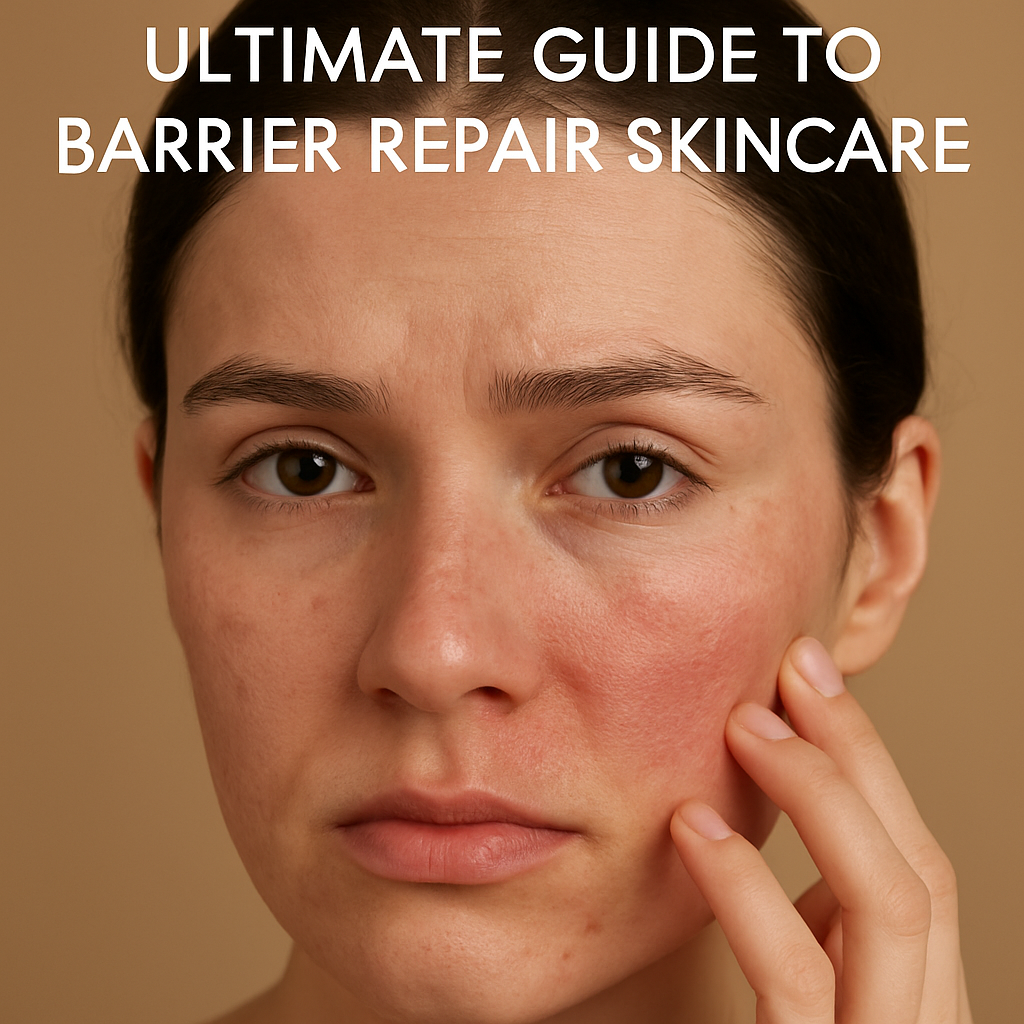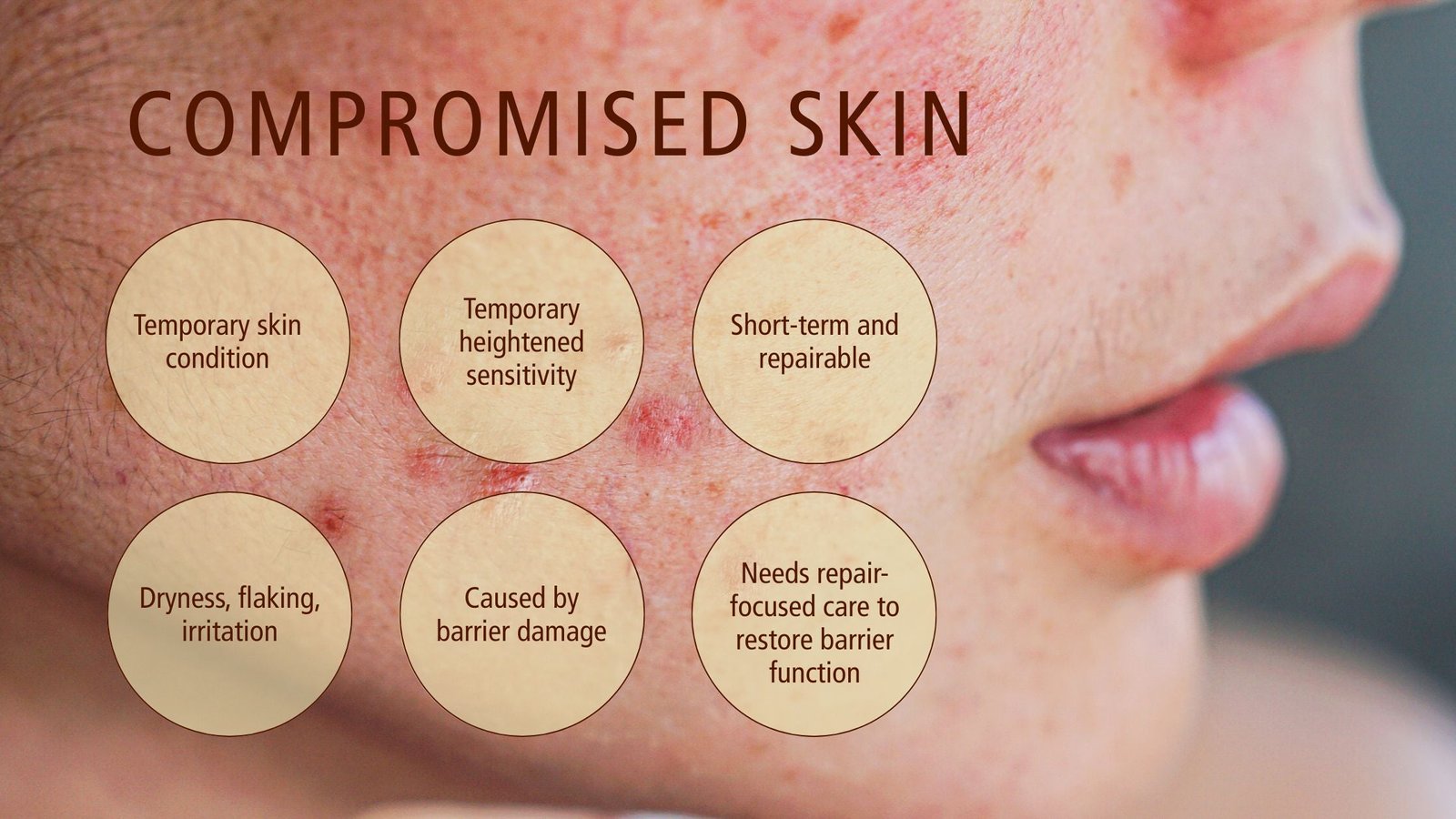Have you ever wondered why your skin feels dry, sensitive, or irritated even after using countless skincare products? The answer might lie in something you don’t often hear about—your skin’s barrier.
Understanding barrier repair could be the key to unlocking healthier, glowing skin. When your skin barrier is damaged, it struggles to keep moisture in and harmful irritants out, leaving your skin vulnerable. But don’t worry—by learning how to support and restore this crucial barrier, you can transform your skin’s health and appearance.
Keep reading to discover what barrier repair really means and how it can benefit your skin like never before.

Credit: www.grerivian.com
Skin Barrier Basics
The skin barrier is a vital part of healthy skin. It keeps the skin safe and balanced every day. Understanding how it works helps in caring for your skin better.
This section explains the basics of the skin barrier. It covers what it is and how it protects your skin from harm.
What Is The Skin Barrier?
The skin barrier is the outer layer of your skin. It is made of fats and skin cells. This layer acts like a shield for your body.
The skin barrier stops harmful things from entering the skin. It also helps keep moisture inside. This keeps the skin soft and smooth.
How The Barrier Protects Skin
The barrier blocks dirt, germs, and pollution. It prevents them from reaching deeper skin layers. This lowers the chance of infections and irritations.
It also controls water loss. Without the barrier, skin becomes dry and flaky. A strong barrier keeps skin hydrated and healthy.
Causes Of Barrier Damage
The skin barrier protects your skin from harm and keeps it healthy. Damage to this barrier makes the skin dry, red, and sensitive. Many factors can weaken this important layer. Understanding these causes helps in caring for your skin better.
Environmental Factors
Sun exposure can burn and dry out the skin barrier. Cold, dry air also strips moisture from the skin. Pollution adds harmful particles that irritate the skin. Wind can cause chapping and roughness. All these environmental elements break down the skin’s defense.
Harsh Skincare Ingredients
Some skincare products contain strong chemicals. Ingredients like alcohol, sulfates, and fragrances can harm the skin barrier. Overuse of exfoliants removes natural oils. This weakens the skin and causes redness. Gentle products help keep the barrier intact.
Lifestyle Habits
Poor diet lacks nutrients needed for skin health. Not drinking enough water causes dry skin. Smoking reduces blood flow and damages skin cells. Stress can lead to skin inflammation. Lack of sleep stops skin from repairing itself. These habits make the barrier less effective.
Signs Of A Compromised Barrier
The skin barrier is the outermost layer of the skin. It protects against harmful elements and keeps moisture inside. When this barrier is damaged, the skin shows clear signs. Recognizing these signs helps take action early to repair the skin. Below are common signals that the skin barrier is compromised.
Dryness And Flakiness
One of the first signs of a damaged skin barrier is dryness. The skin loses its ability to hold moisture. This causes rough and flaky patches to appear. Dryness often feels tight and uncomfortable. It may worsen in cold or dry weather.
Redness And Irritation
Red skin is a common sign of barrier damage. The skin becomes inflamed and irritated easily. Small bumps or rashes may develop. This happens because the skin cannot protect itself well. Redness may come and go or stay for a long time.
Increased Sensitivity
When the barrier breaks down, skin feels more sensitive. Products that were once safe may cause stinging or burning. The skin reacts strongly to sunlight, pollution, and harsh ingredients. Sensitivity can make daily skincare uncomfortable.
Key Ingredients For Repair
Healthy skin needs a strong barrier. This barrier protects from germs, pollution, and moisture loss. Certain ingredients help fix and strengthen this barrier. They keep skin soft, smooth, and hydrated. Let’s explore the key ingredients that help repair your skin barrier.
Ceramides And Fatty Acids
Ceramides are natural fats found in the skin. They hold skin cells together like glue. Fatty acids work with ceramides to keep skin flexible. Together, they stop water from leaving the skin. This prevents dryness and irritation. Using products with ceramides and fatty acids helps rebuild the skin barrier quickly.
Hyaluronic Acid
Hyaluronic acid is a powerful moisturizer. It can hold many times its weight in water. This ingredient pulls moisture into the skin and locks it there. Hydrated skin looks plump and healthy. Hyaluronic acid supports the barrier by keeping skin cells full of water. It also helps calm irritated, damaged skin.
Niacinamide
Niacinamide is a form of vitamin B3. It improves the skin’s barrier function. This ingredient reduces redness and inflammation. Niacinamide boosts the skin’s natural repair process. It also helps skin hold moisture better. Regular use of niacinamide makes skin stronger and more resistant to damage.
Effective Barrier Repair Routine
Building an effective barrier repair routine helps keep your skin healthy and strong. It protects against dryness, irritation, and damage. The right steps support your skin’s natural ability to heal and stay balanced. Simple habits can make a big difference.
Cleansing Tips
Choose gentle cleansers that do not strip natural oils. Use lukewarm water instead of hot water. Avoid scrubbing your skin hard. Pat your face dry with a soft towel. Cleanse only twice a day to prevent over-drying.
Moisturizing Strategies
Apply moisturizer while your skin is still damp. This locks in moisture and helps repair the barrier. Look for products with ceramides or hyaluronic acid. Use a thicker cream at night for extra hydration. Reapply moisturizer during the day if skin feels dry.
Sun Protection Importance
Wear sunscreen every day, even on cloudy days. UV rays weaken the skin barrier and cause damage. Use broad-spectrum sunscreen with at least SPF 30. Reapply sunscreen every two hours when outdoors. Wearing hats and sunglasses adds extra protection.

Credit: fwbeauty.com
Long-term Benefits Of Repair
Repairing the skin barrier brings benefits that last for a long time. It helps keep the skin healthy and strong. Over time, the skin looks better and feels more comfortable. The repair process supports natural protection and improves how the skin works every day.
Consistent care leads to results that stay. The skin holds more moisture and shines with health. It also reacts less to harsh elements. These changes improve skin quality for weeks and months.
Improved Hydration
A healthy skin barrier holds water better. This stops dryness and rough patches. Hydrated skin feels soft and smooth. It also heals faster from damage. Keeping moisture inside stops tightness and flaking.
Enhanced Skin Glow
Skin with a strong barrier shines more. It looks fresh and bright naturally. The repair reduces dullness and uneven tone. Light reflects better on healthy skin. This glow makes the face appear lively and young.
Reduced Sensitivity
Repair lowers skin’s reaction to irritants. It becomes less red and itchy. The skin can handle weather and products better. This means less discomfort and fewer flare-ups. Sensitive skin grows calm and balanced over time.
Common Myths About Barrier Repair
Many people misunderstand barrier repair and its effects on the skin. These myths create confusion and make people avoid proper care. Knowing the facts helps to take better steps for healthy skin. Myths often cause fear or false hopes about barrier repair. Clearing these ideas helps you make smart choices for your skincare routine.
Over-moisturizing Concerns
Some think applying too much moisturizer harms the skin barrier. The truth is, the skin needs enough hydration to heal. Using a good barrier repair product does not mean flooding the skin. It means giving the skin what it needs to stay strong. Over-moisturizing is rare with the right products and amounts. Proper moisturizers support the skin’s natural repair process.
Instant Results Expectation
Many expect barrier repair to work immediately. Skin repair takes time and patience. The barrier heals slowly as new skin cells form. Quick fixes often do not last long or fully restore the skin. Regular use of barrier repair products leads to better results over weeks. Trust the process and keep your routine consistent for healthy skin.

Credit: www.ayurclinic.com.au
Frequently Asked Questions
What Is Barrier Repair In Skincare?
Barrier repair means fixing the skin’s outer layer to keep it healthy and protected.
Why Is Skin Barrier Important For Healthy Skin?
The skin barrier stops water loss and blocks harmful things like dirt and germs.
How Does Barrier Repair Improve Skin Hydration?
It helps skin hold moisture better, making it soft and less dry.
What Ingredients Help With Skin Barrier Repair?
Look for ceramides, fatty acids, and niacinamide to support barrier repair.
Can Barrier Repair Reduce Skin Sensitivity?
Yes, a strong skin barrier lowers redness and sensitivity to products.
How Often Should I Do Barrier Repair Skincare?
Daily care with gentle products keeps the skin barrier strong and healthy.
Conclusion
Healthy skin starts with a strong barrier. Repairing it keeps moisture in and irritants out. This helps skin feel soft and look smooth. It also reduces redness and dryness. Using gentle products supports this healing process. Avoid harsh soaps and over-washing.
Patience matters—skin repair takes time and care. Consistent steps lead to lasting benefits. Your skin will thank you with a fresh, calm glow. Simple changes make a big difference. Keep your skin barrier strong for overall skin health.
 Skip to content
Skip to content 